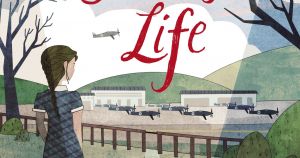
Review: The Real Boy by Anne Ursu
Insecure autistic boy meets thoughtful, magical adventure: The Real Boy is now my go-to recommendation when people ask for books with autistic protagonists.

Insecure autistic boy meets thoughtful, magical adventure: The Real Boy is now my go-to recommendation when people ask for books with autistic protagonists.

Although I sometimes genuinely enjoyed myself while reading this book, those times were unfortunately outweighed by the serious inaccuracies.

Princess Tilda does not demonstrate the need to “overcome” her clubfoot, that word many of us in the disability community have come to loathe. To me, Tilda represents a new kind of heroine, who is strong and doesn’t need saving, but also acknowledges and shows her vulnerability and insecurities.

We have so few stories—especially lighthearted ones—with wheelchair-using characters that I’d hoped I’d be able to recommend I Funny, but it’s a dangerous narrative wrapped up and presented as “good messages.”

Wonderstruck is wonderful. It is, to date, the most creative and ambitious novel about the d/Deaf experience in America I’ve ever come across.

I could criticize the focus on “fixing” and of the correlation between unwantedness and disability, but the book is focused on unwantedness in a broader fashion; Ava is as challenged by her circumstances as she is by her clubfoot.

When Deenie was first published, it may well have been a positive representation of the experience of a child with scoliosis, but it hasn’t held up well.

Although Kurt’s character seems to largely exist to serve the central romance, I was pleasantly surprised by how many pitfalls Perkins avoided in a wonderfully understated manner. Various assumptions and tropes were casually turned over with a single line here or there.

The Categorical Universe of Candice Phee is a fun, well-written book, if an imperfect autism read.

Although I can’t recommend it wholeheartedly, Louder Than Words features a well researched, realistic portrayal of progressive mutism.